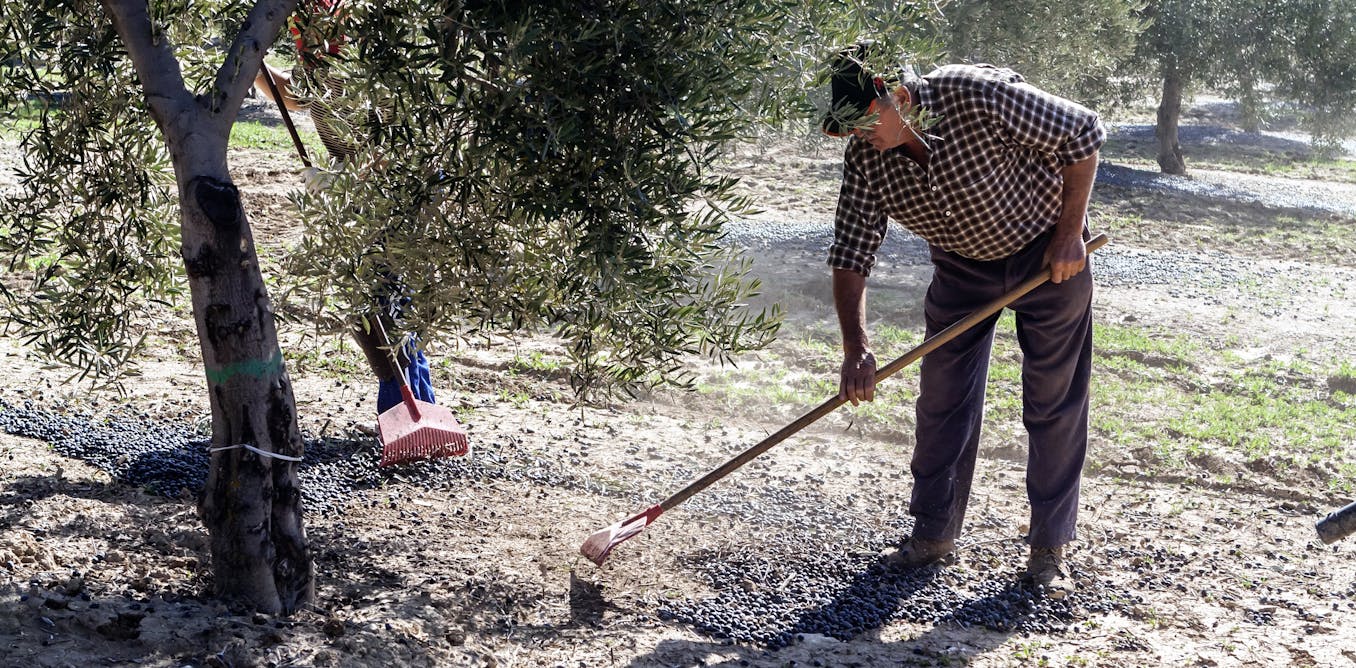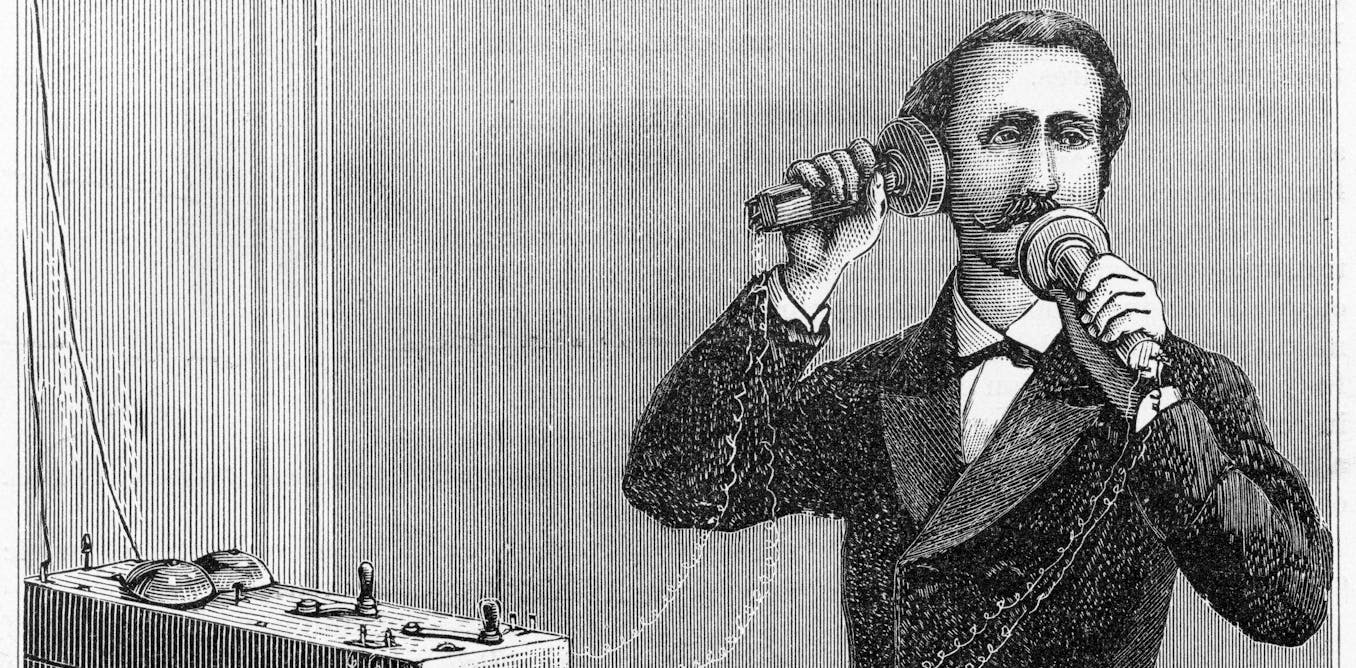Don't Be a Jerk to Your Barista — and Other Thoughts on Frontline Work | Adriann Negreros | TED
In the Ted Talk “Don’t Be a Jerk to Your Barista — and Other Thoughts on Frontline Work”, speaker Adriann Negreros touches on the challenges faced by frontline workers, such as baristas at Starbucks and drivers for Uber or Lyft. He shares his personal experience and his mission to make frontline jobs better. The talk highlights the need for empathy and understanding from CEOs and companies towards their frontline workers. Adriann advocates for CEOs to spend more time on the front line to truly understand the challenges faced by workers. He also emphasizes the importance of fair pay and emotional needs beyond just wages. Small changes, such as shift flexibility and providing safety gear that fits all body types, have shown remarkable improvements in turnover, safety incidents, and employee engagement. Adriann firmly believes that businesses can make these changes without imploding, and that treating frontline workers with respect pays off in the long run. Ultimately, the talk serves as a call to action for companies to prioritize the well-being and dignity of their frontline workers, recognizing that a better working environment benefits both the employees and the business itself.
Watch the video by TED
Would it be alright if I told you all about my first kiss? It sounds like it would be, alright. So I’m from a small town in the United States, and I was working at one of the local spots, a job that required me to be in person, a frontline job. So I’m there, behind the counter. The person I really like, they come in.
We have a great conversation. And I know this, because it ends with a kiss. Perhaps that kiss that day, though, was the only good thing about the job. The work itself was really, really hard. Most frontline work is, and you know this if you drive for Uber or Lyft, or if you work as a barista at Starbucks. Today, I spend all my time
Working with some of the world’s largest companies, companies with tens of thousands of frontline workers. Nearly three billion of us around the world do this work, and it’s my mission to make that job as good as possible. It just doesn’t take much research to realize why we need to improve this job.
80 percent of frontline workers faced some form of incivility in 2023, and that’s translated into anger. 40 percent of the global adult workforce is mad at work. Now, I’m not a psychologist, but I can’t imagine it’s good when half of the adults are angry at their job.
And that number has doubled from before COVID. I just don’t think this has to be the case. I think frontline jobs can be great careers. Let’s talk about how to make that happen. For me, it starts at the top. CEOs don’t know what the frontline job is like,
And they have got to figure it out right now. I’m not sure if any of you have seen the show “Undercover Boss.” It was hot, at least in the United States, for a while. Very simple premise — executives leave their corner office, they spend some time on the front line,
And they’re always really, really shocked what they find. And you might say, “Adriann, of course they’re shocked. It’s reality TV. It’s American reality TV. That is the best of the best.” “These executives, they went to Harvard Business School, that’s HBS. They have big offices. They know what the job is like.” You might be shocked to find CEOs spend just six percent of their working hours with the front line. They spend 70 percent of their time in meetings.
I just don’t believe you can actually understand the job when you spend just a few days a year seeing it. What I would like to see, instead — I would like to see a CEO spend 30 days straight — that’s just eight percent of the year,
Tons of time, still, for your meetings — 30 days straight doing one shift every single day. And then spend only the money you make from that shift, with no backups. After this 30 days, ask yourself … “Can I make it? Would I want this job to be my kids’ career?”
I think, through this experience, you’ll be a lot more attuned to the problems with the job, and you’ll also, very importantly, realize your own employees have a lot of good ideas on how to make the job better. And before I talk about those ideas, let’s address the elephant in the room for everyone.
That’s pay. Wages matter. And it drives me crazy that some CEOs in the Fortune 500 are making 70,000 dollars a day, and it would take their own employees 150 years to make what they make in one year. There’s a word for this, it’s pay inequity, and it’s wrong, and it frustrates me.
And I could talk about this for hours, believe me. Afterwards, let’s go talk about it. But today, I want to share something from our own research. We’ve surveyed tens of thousands of frontline workers around the globe. Why do they say they quit their own job?
They say it has to do a lot more with emotional needs than just pay alone. A really good example is a high desire for some shift flexibility. And when I bring this up with executives, I often hear: “Shift flexibility for frontline workers? That can’t happen. Their job requires them to be in person.
Way too expensive.” I don’t know if that’s true. One company I worked with for a very long time, they did some superdramatic things. So, folks, buckle up those seat belts, these are some crazy changes that they made. Hold on here. So the first thing they did,
They gave their workers a ten-minute buffer in the morning so they could drop their kids off on time. I know. Crazy, right? My mind was blown when this came up as an idea, but it gets crazier. The second thing they did, they got rid of their point system. Essentially, there’s an attendance-policy system
At most manufacturing plants, still, around the world. If you’re late to work or don’t show up, you get a little check mark by your name, like in kindergarten. It’s public, people can see this. They said, “Let’s get rid of that.” Good idea. The last thing they did,
And this is, like, the moon-shot idea, like, a next-gen AI sort of thing. The thing they decided to do … they let their workers end their shifts on time. You work nine to five, you get to leave at five. It’s crazy stuff. Obviously, I’m kidding. Like, this is clearly a joke.
But these small changes, very few companies are doing that, and the results speak for themselves. At some of these plants, turnover is down 50 percent. There’s a 40 percent reduction in overtime hours, and there’s actually more perfect attendance than ever. Another company we worked with for a long time,
We come in and we see people are getting hurt a lot. Like, physically injured on the job. And we quickly realize the personal protective gear that’s issued to the employees, it’s made for only one body type. You can probably guess what body type. It’s the white male body type.
And we say, “That’s not very smart, so let’s get safety gear that fits multiple body types.” And that, along with a couple other very small changes, safety incidents were down 40 percent. And when I bring these examples to executives, they often say, “That makes a ton of sense. I’m very compelled by this.
But isn’t this turning into a ‘If You Give a Mouse a Cookie’ situation?” And I would say, one, like, CEO, great reference, incredible children’s book. Go back and read it, if you haven’t read it recently. And two, and very importantly, yes, it is turning into that situation.
You can give your employees the full cookie. I’ve talked to hundreds, thousands of workers over the last couple of years. And what do the workers say themselves that they need to be successful? They say they need a clean bathroom. They need safety gear that fits. They need a little time to eat lunch.
And they need a living wage. And when I talk to executives, I often hear, “Well, we can give A, but we can’t give B. If we give B, our business is going to implode.” I’m sorry, if your business is going to implode
Because you provide workers, I don’t know, a clean bathroom and a living wage, it’s time to look at your business model again. And … Yeah. And I’m not saying this to ding CEOs or companies, I’m saying this because I have worked with organizations to change their business model. It is very possible. And when you make these changes, what actually happens … it pays for itself. It pays for itself in less overtime, less turnover
And happier and much more engaged employees. And that’s good for your people, CEO, that’s also very good for your business. There’s another thing that matters to me a lot. I hope it matters to all of you as well. It’s how we treat each other.
Now I’m not saying you have to wander the world as your own version of the world’s best optimist, Ted Lasso. You can do that, that would be great. More Teds in the world, net positive for the world. You’re allowed to be mad if a brand provides you a bad experience. That is OK.
But before you get mad at the worker in front of you, I want you to ask yourself, why did this breakdown in experience happen? Because I think these experiences, they go bad from decisions way above a worker’s pay grade. Let me talk a little bit
About how workers themselves are mandated to treat all of us as customers. There are these handbooks workers are given on day one, and they are filled with rules that employees must follow to provide us good customer service. Let me give you some examples. At some fast-food chains,
Employees are told if they see somebody sitting by themselves for ten minutes or so, to go check on them. At some retail stores, you must solemnly — this is written down — solemnly swear, if someone comes within ten feet of you, you’ll make eye contact, you’ll smile at them,
You’ll ask if you can help with anything. [One of] my favorite rules I’ve seen recently, some airlines, they mandate how to treat your dog as a customer on a plane. And this includes all types of dogs — big, small, barking, anxious. There are rules the flight attendants must follow.
I’ve seen this stuff, I’ve asked workers about it. I asked about it on Reddit a couple of weeks ago, and on Reddit, the front line comes out in full force, so go have a look after this. The point is, somebody took the time to write down these rules,
And mandated the employees follow them. We also can follow a set of rules in what I will call the “Handbook of Humanity.” And I know we can follow these rules. Let me tell you why. There’s this restaurant called the Restaurant of Mistaken Orders. I’m not sure if you’ve heard of it.
It’s based in Tokyo, Japan. Almost all the employees there have dementia. It’s a really interesting idea in a country where one in five or so people will be affected by dementia in the next couple of years. The restaurant is trying to raise awareness,
And I might be leading the witness just a little bit here. At the Restaurant of Mistaken Orders, 40 percent of the orders are delivered incorrectly. You get the wrong food. 99 percent of people have a really good experience at this restaurant. The other one percent filled out the survey wrong. You know, the thing is, you might say, “Adriann, obviously, the Restaurant of Mistaken Orders, people know the rules, they know what to expect.” Yeah, that’s true. And you know what?
The rules in the Handbook of Humanity are also written down, they’re very clear for everyone to follow. Rule number one — if I have to spell it out for everyone — and I will, don’t worry, I’m not going to leave you hanging — Number one: don’t be a jerk.
Don’t be a jerk when your specialty latte takes a bit too long to brew, and don’t be a jerk when your flight is delayed and the gate agent has to tell you, “Because of the thunderstorm” … No, gate agents cannot control the weather, contrary to popular belief.
Don’t be a jerk, and be a good human. The Handbook of Humanity holds in all of these situations. There’s one more group of people I want to talk to you [about] today, before I end my time. What is my advice for the three billion of us that do frontline work?
What can frontline workers themselves do to make their experience better? I’ve honestly thought about this for a very long time. And I don’t think frontline workers need to do anything. All I have to say to the three billion frontline workers that show up every day, in person, and that includes before COVID,
During COVID and even today. All I have to say, and all the CEOs of these companies should be saying, is a massive, massive “thank you.” You should not have to ask for basic human decency, comfortable working conditions and a living wage. And you should expect all of us, as leaders of companies, all of us as customers you interact with, all of us just as basic humans … to do better.
And I am so confident we can do better. Let’s do better. Thank you very much.
About TED
The TED Talks channel features the best talks and performances from the TED Conference, where the world’s leading thinkers and doers give the talk of their lives in 18 minutes (or less). Look for talks on Technology, Entertainment and Design — plus science, business, global issues, the arts and more. You’re welcome to link to or embed these videos, forward them to others and share these ideas with people you know.
Video “Don't Be a Jerk to Your Barista — and Other Thoughts on Frontline Work | Adriann Negreros | TED” was uploaded on 01/08/2024 to Youtube Channel TED


































